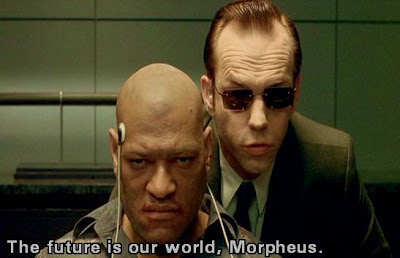The Problem with People

In the film The Matrix, the Agent Smith played by Hugo Weaving holds a short, but memorable philosophical session with his captive, resistance fighter Morpheus. He tells him about the first versions of the Matrix that were created in order to keep the imprisoned human population occupied while their energies were siphoned from them like batteries. In the early versions of the Matrix everything was perfect. It was like paradise, free of conflict and problems. It was a perfect world. That perfection is what made it impossible for humans to accept, and so when confronted with this perfect world humans rejected it wholesale and so those early versions of the Matrix were total failures. So instead of having the Matrix make people happy and give them a perfect world, the machines decided to give them a world similar to what they already knew. Imperfect, full of struggle, pain, loneliness, doubt and rejection. People accepted this and the Matrix continued to functi






